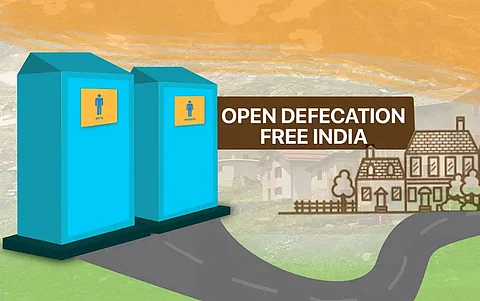
- Home
- Live Blog
- Breaking News
- Top Headlines
- Cities
- NE News
- Sentinel Media
- Sports
- Education
- Jobs

Transforming villages into Open Defecation Free (ODF) villages was a remarkable social change behaviour achieved by India through universal access to toilets. Sustaining the behavioural change and putting in place solid or liquid waste management has been the second biggest challenge that was articulated in setting the next goal of transforming these villages into ODF plus villages. The government has claimed that the country has achieved yet another major milestone under the Swachh Bharat Mission (Grameen) Phase II with 75% villages achieving ODF Plus status. The figure needs to be taken with a pinch of salt as it has been arrived at by tweaking the ODF plus criteria. Besides, the achievement figure is based on self declaration by the villages. One needs to wait for honest third party evaluation of these ODF plus villages to ascertain the ground realities. The Department of the Water and Sanitation under the Ministry of Jal Shakti communicated the revised criteria on declaration of villages as ODF to all chief secretaries earlier this month. The official communiqué explains how the revision in the criteria has helped 4.43 villages to declare themselves ODF plus. It reveals that the Ministry had received feedback from the States that it might require considerable time to fulfil all criteria under various verticals for declaring a village ODF plus and progress towards the goal has also not been reflected accurately. Introduction of intermediary stages by the Department ‘ODF Plus-Aspiring’, ‘ODF Plus-Rising’ before achieving the final stage ‘ODF Plus –Model’ marks a departure from the original criteria. The previous criteria stipulated that an ODF plus village is one which has sustained open defecation free status, ensures either solid or liquid waste management, and is visually clean. An ODF Plus-Aspiring village under the revised criteria is one in which all households has access to functional toilet facility, all schools, Anganwadi centres, panchayat offices have access to a functional toilet, and the village has arrangement for solid waste management or liquid waste management. In the ODF Plus- all schools, Anganwadi centres, panchayat offices must have access to separate functional toilet for male and female and the village has arrangements for both solid and liquid waste management. The ODF Plus-Model, which is the final goal for all villages, should additionally ensure that all public places are observed to have minimal litter, minimal stagnant water and no plastic waste dump in public places and should prominently display ODF plus Information, Education and Communication messages through wall paintings/billboards etc. Declaration of any of three stages of ODF plus is to be done by the Gram Sabha through a resolution while third party verification will have to be completed by district and block authorities within 90 days of the declaration. Official data shows that of the 4,43,964 ODF Plus villages declared so far, 2,92,497 villages are ODF Plus Aspiring villages with arrangements for Solid Waste Management or Liquid Waste Management and only 55,549 villages are ODF Plus Rising villages with arrangements for both Solid Waste Management and Liquid Waste Management and 96,018 villages are ODF Plus Model villages. The figures speak volume about the ground realities and gap that needs to be bridged towards declaration of all villages as ODF plus Model village. Altogether 2,31,080 villages have arrangements for solid waste management, and 3,76,353 villages have arrangements for liquid waste management. Village panchayats and NGOs focussing on putting in place arrangement for both solid and liquid waste management can significantly increase the number of ODF Plus Rising villages. For keeping the villages clean with minimal litter and minimal plastic waste actually requires massive awareness among people and authorities putting in place an effective waste collection system or household based waste management system. Awareness on harmful impact of plastic wastes on environment, ecology needs to be scaled up in a mission mode. Reducing plastic use, more particularly single-use plastics (SUP) that litter public places actually requires transformational behavioural change like the one achieved by the open defecation free campaign. Dumping of SUPs have polluted many water bodies, destroyed river ecologies in many villages and if not checked urgently, villages achieving the ODF Plus Model stage will remain a herculean task. Village communities need not wait for any government or panchayat initiatives to make villages clean but can achieve it by simply replicating some best practices for cleanliness followed by the Asia’s cleanest village Mawlynnong in Meghalaya and also by developing their own cleanliness models. Availability and accessibility of water is critical for keeping public toilets functional. The success of ODF plus, therefore, is linked to successful implementation and sustainability of Jal Jeevan Mission of providing every rural household clean water. The complacency over achieving intermediary stages of ODF plus village must not overshadow the desired goal of transforming every single village into an ODF Plus model village.